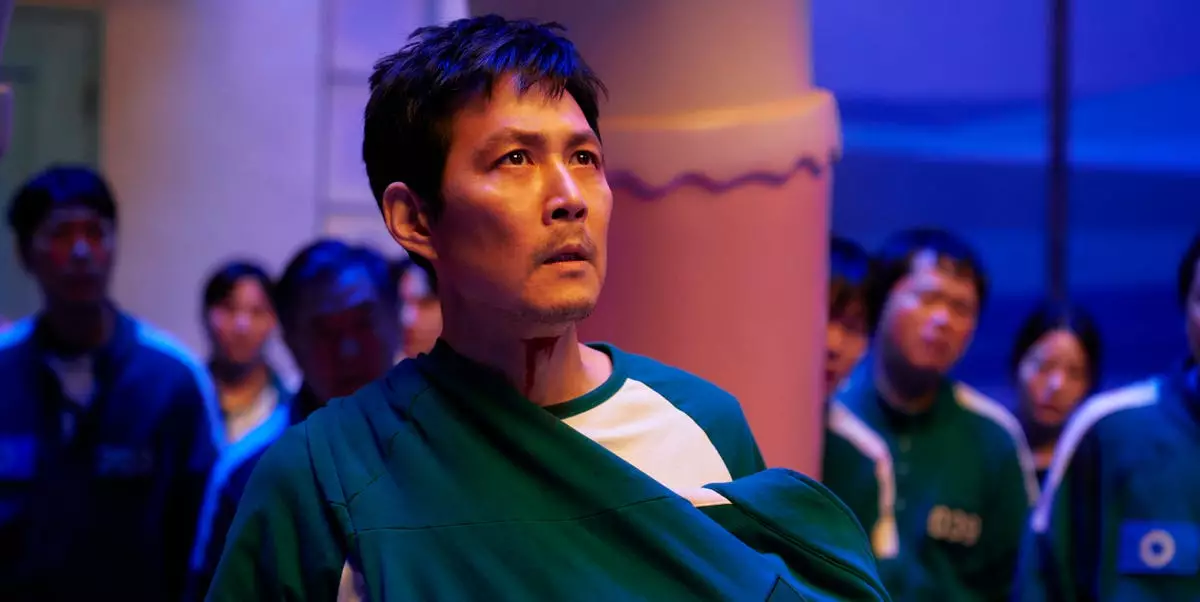“Squid Game” captivated audiences worldwide not just through its visceral depiction of survival but through its stark commentary on social inequality and human nature. The series’ ending, which diverged from what some viewers might have anticipated, underscores a crucial point: sometimes, the most profound messages come wrapped in sacrifice rather than triumph. Creator Hwang Dong-hyuk’s decision to craft a less optimistic conclusion reveals a deliberate intent to provoke reflection about our current societal trajectory. The narrative’s closure, emphasizing selfless acts and hope for the future, challenges viewers to consider the possibility that true heroism lies in the willingness to sacrifice comfort for the greater good.
Behind the Scenes of a Thoughtful Ending
Initially, Hwang envisioned a more conventional, “happy” ending—Gi-hun reunites with his daughter in the United States, a symbol of hope and familial love. However, as he delved deeper into the themes of his creation, his perspective evolved. He recognized the growing chaos, economic disparity, climate despair, and global unrest that define our era. These realities influenced him profoundly, leading to a reimagining of what a meaningful conclusion should convey. Instead of a narrative where the protagonist survives solely for personal happiness, he chose a sacrifice that symbolizes collective responsibility: Gi-hun gives his life to ensure the child’s survival.
This decision wasn’t made lightly; it stemmed from a sense of moral urgency. Hwang’s reflection on societal decay and the younger generation’s waning hope colored his storytelling. His choice to prioritize a message of altruism over easy resolution makes “Squid Game” not just entertainment but a cautionary tale with a moral backbone. It calls into question what kind of future we are actively shaping and whether the sacrifices of today can serve as the foundation for a better tomorrow.
Implications of the Final Sacrifice
Gi-hun’s ultimate act is a stark departure from traditional heroic narratives. Instead of triumph or vindication, the finale offers something more resonant: hope in the form of selfless love. The scene where he’s willing to relinquish everything—his chance at reunion, wealth, and safety—symbolizes a poignant rejection of greed and selfishness that dominate contemporary society. It’s a stamp of moral responsibility, insisting that the next generation deserves better, even at the cost of personal suffering.
Moreover, the post-credits scene, where the Front Man visits Gi-hun’s daughter with her father’s belongings, underscores the lasting impact of sacrifice. It embodies the hope that individual acts of kindness and self-sacrifice ripple beyond the immediate, instilling a legacy of resilience and moral integrity. This ending leaves viewers pondering their own role within societal structures and challenges them to consider sacrifices they might make for future generations.
A Reflection on Societal Cynicism and the Need for Change
Hwang’s commentary extends beyond mere storytelling; it is a stark critique of global societal conditions. The shift towards a more somber ending is rooted in his belief that today’s world is “getting worse,” plagued by widening inequality, environmental crises, and political instability. His willingness to deviate from the traditional narrative formula highlights a crucial point: stories have the power to influence societal mindset. The conclusion of “Squid Game” becomes a moral blueprint—reminding us that real change may require uncomfortable sacrifices and a collective awakening to our responsibilities.
In a landscape saturated with escapist fiction, Hwang’s choice signals a need to confront reality head-on. His ending champions the idea that sacrifice, hope, and collective responsibility are the true markers of heroism in a fractured world. It urges viewers not only to entertain themselves but to reflect on how they can be agents of positive change. As we grapple with the complexities of modern life—climate catastrophe, economic inequality, and geopolitical unrest—the message is clear: sometimes, the only way forward is through acts of selfless courage, even if it means rewriting the traditional endings of our stories.

